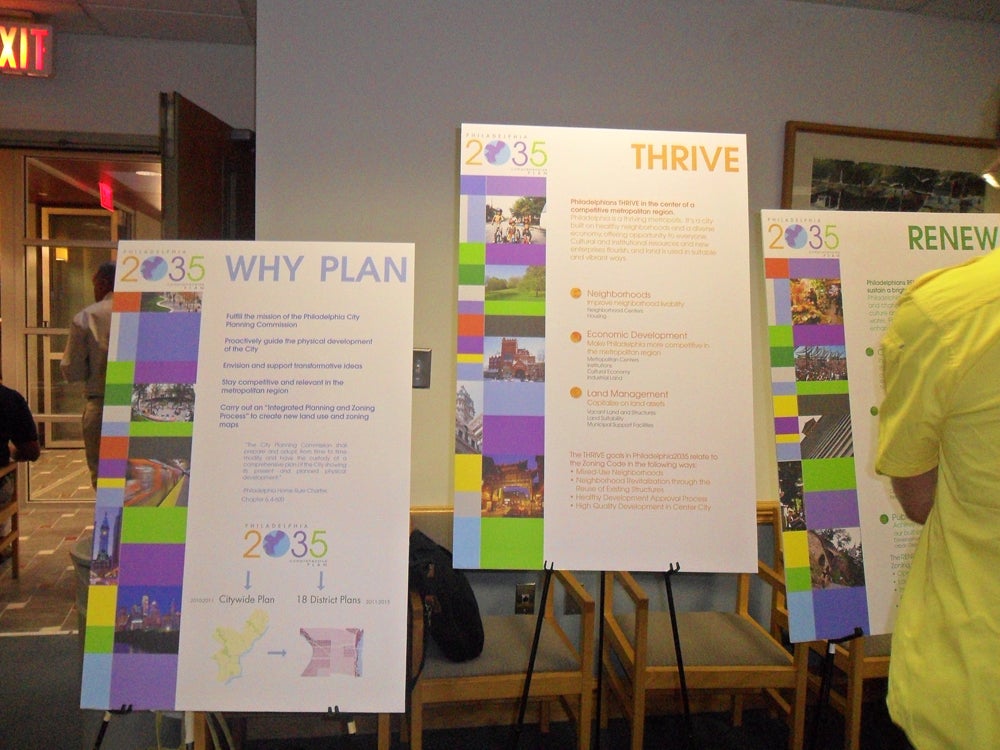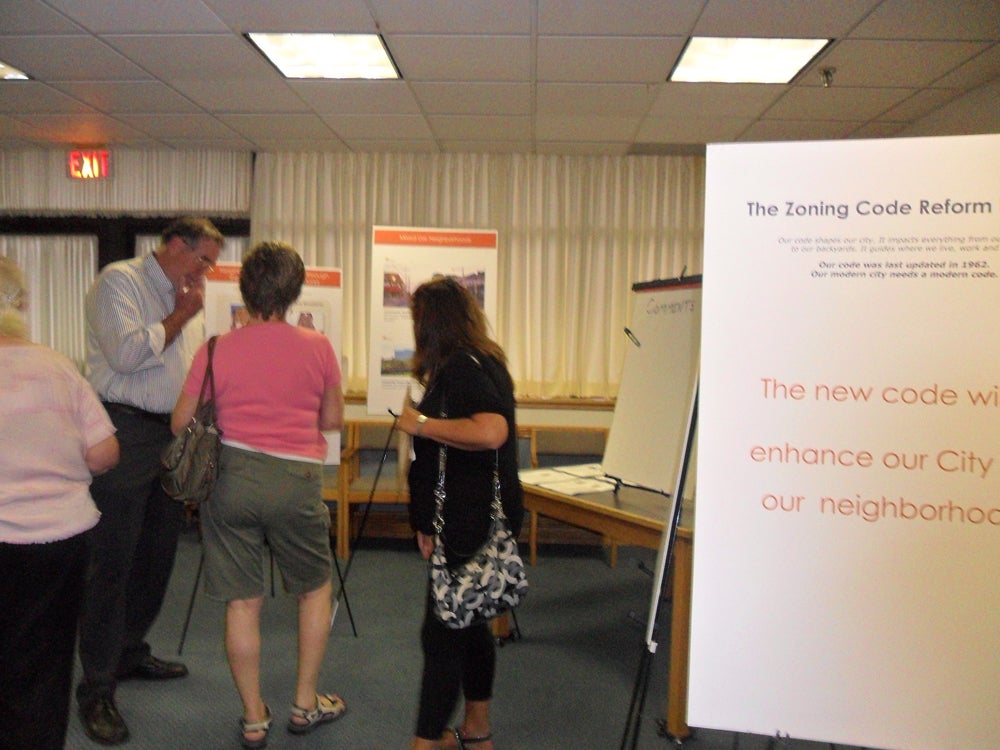In the Northeast, some residents oppose zoning reform that would allow more renters
This article was co-written by Taara El-Savage and is a project completed in partnership with Temple University’s journalism capstone class Philadelphia Neighborhoods. Students Savage-El and Sharpe will cover zoning code reform, focusing on its impact on neighborhoods through December.
Northeast Philadelphia residents had the opportunity to review zoning code reform up close at one of the first in a series of community engagement meetings being held this Fall.
At the 10th City Council District open house last Wednesday, some residents said that certain aspects of the code rewrite would negatively affect their neighborhoods, while others praised the Philadelphia Zoning Code Commission for its efforts.
Many who attended, though attendence was light, were unhappy that the reform would allow the conversion of single-family homes into duplexes or triplexes, which would increase the likelihood of rental properties in typically family-oriented neighborhoods.
As PlanPhilly reported earlier this month, some in the Northeast, such as residents of Fox Chase, are particularly concerned with accessory dwellings, as are residents of Somerton, Bustleton and Ashton Square.
“The conversion of houses into apartments, and duplexes into triplexes affects parking, which is already bad in our neighborhood,” said Pat Cantwell, treasurer of the Somerton Civic Association.
SCA President Domenic Ragucci, elaborated by saying accessory dwellings in basements are already serious problems in the neighborhood.
In Ashton Square, a residential neighborhood located near Northeast Philadelphia Airport, “the abuse of accessory dwellings is a concern,” said Dennis Ward, Zoning Chair of the Ashton Square Civic Association and a former building inspector.
Literature posted around the meeting — hosted at Holy Family University — helped residents understand some proposed changes. One poster emphasized that limits would be placed on non-owner occupied units. At the same time, the poster did not mention that the reform as it stands now would allow accessory dwellings.
Tenth District Councilman Brian O’Neill, who is a member of the Zoning Code Commission, criticized the inclusion of accessory dwellings in the reform, although he was unsure of how they got there. “I can’t believe apartments got into the rewrite,” he told the crowd. O’Neill reiterated his opposition to any allowance for accessory dwellings.
Other Northeast residents applauded aspects of the reform, like the inclusion of more green space. East Torresdale Civic Association members were also excited about the park reform. Resident Bill Kennedy said it was the best aspect of the open house.
Sarah Chiu of the Planning Commission, presenting for the Zoning Code Commission, explained that the rewrite would enhance green space. “There would be a two-to-one ratio for trees, meaning for every tree cut down, two should be planted,” said Chiu.
The zoning code reform also seemed popular for residents of Upper Holmesburg. Resident Barbara Gunning said she appreciated its community association input and mixed-use property reform. Indeed, the Commission made it clear that it would simplify mixed-use zoning, making it easier for businesses to be developed alongside residences. Lynne Gregory, also an Upper Holmesburg resident, echoed Gunning’s sentiments on mixed-use zoning reform.
Other Northeast residents praised the simplification of the rewrite. “I think it will be much more readable, much more usable,” said Marion Brown of Fox Chase. Brown added that the draft contains “many, many improvements.” At the same time, Brown cautioned the Commission to foster uniformity across the city on all issues.
Eva Gladstein, the Executive Director of the Zoning Code Commission, explained just how the draft rewrite would affect Northeast Philadelphia. “The Northeast has very well-formed civic associations,” said Gladstein.
“We’re looking for the right balance between developers and communities.”
WHYY is your source for fact-based, in-depth journalism and information. As a nonprofit organization, we rely on financial support from readers like you. Please give today.






